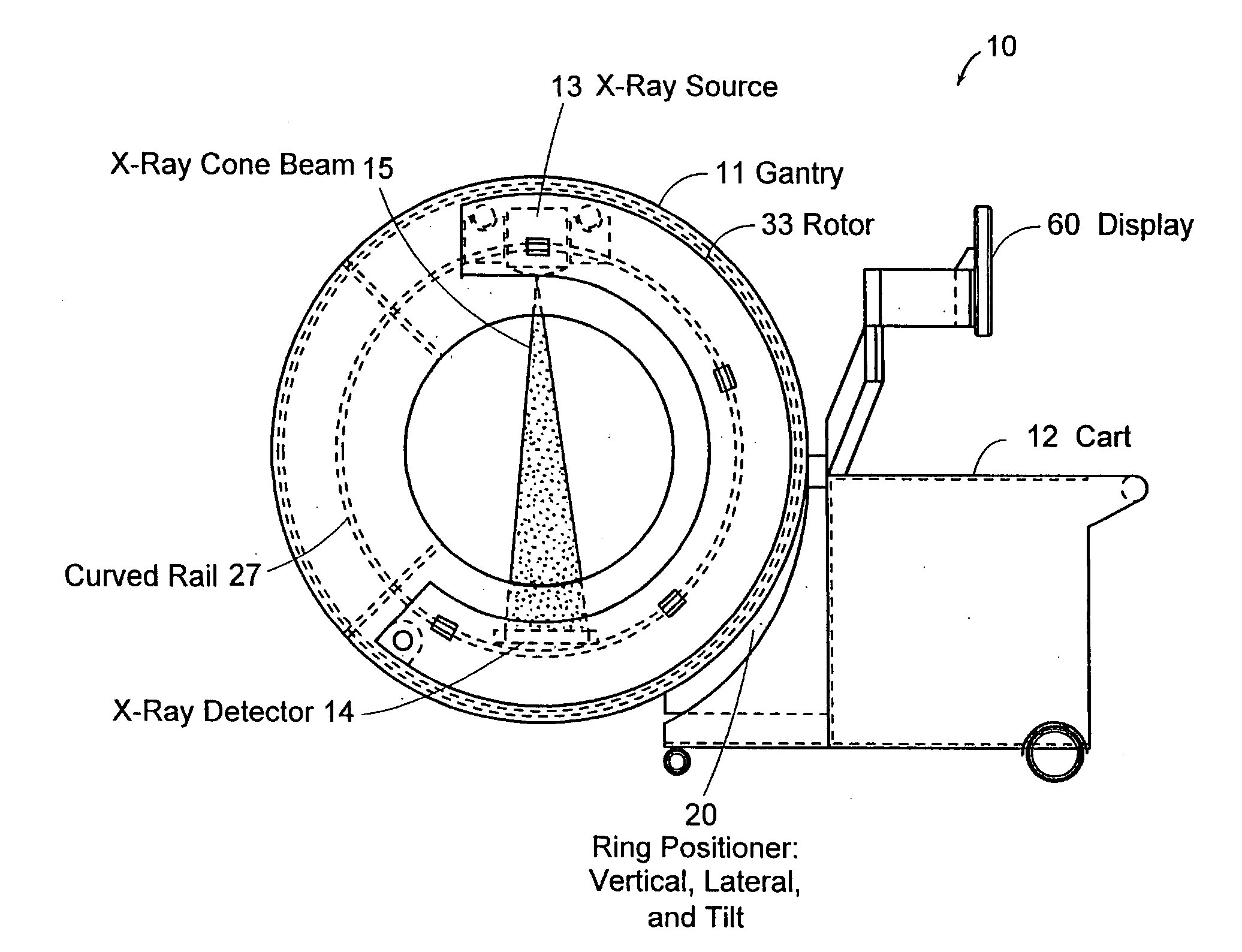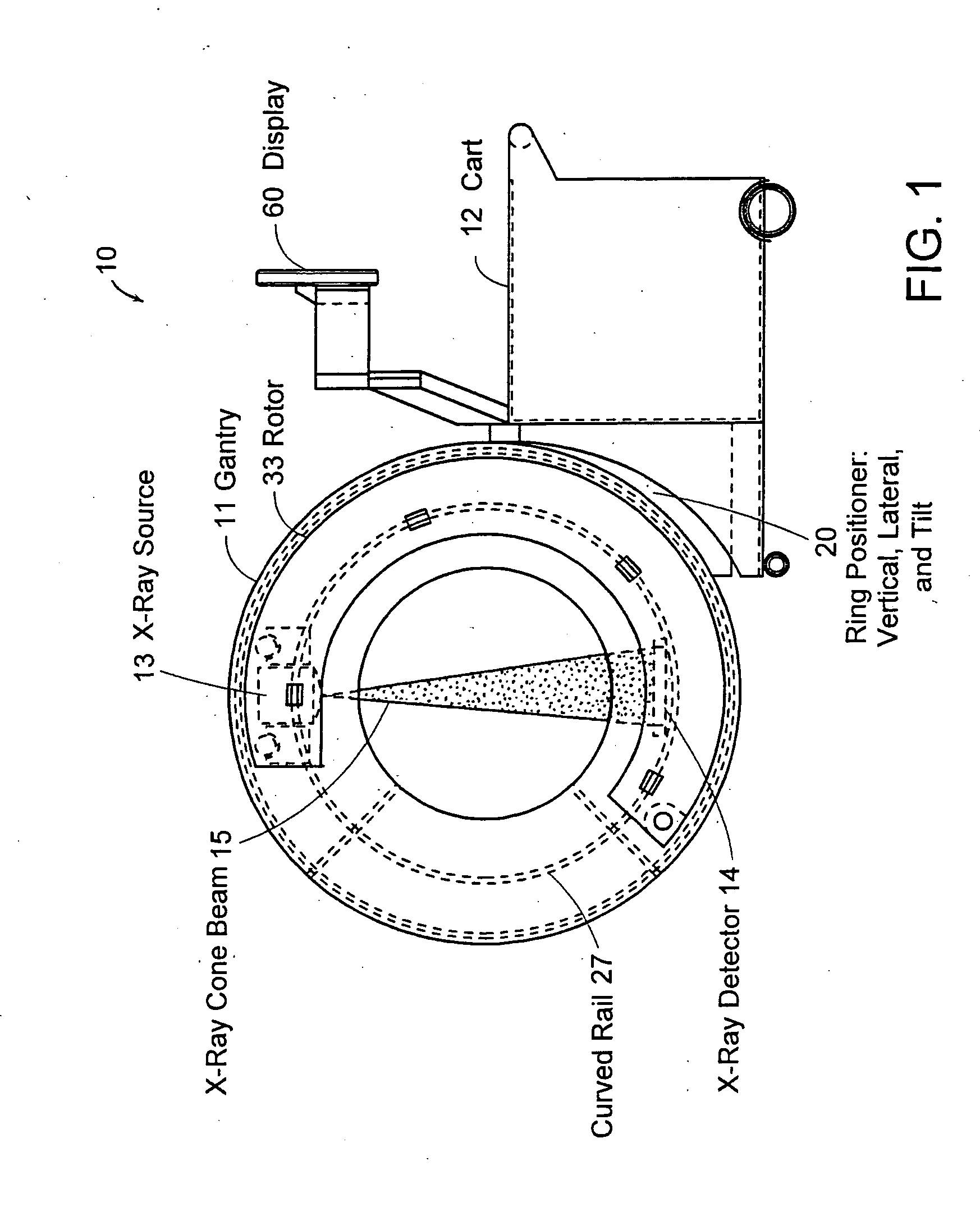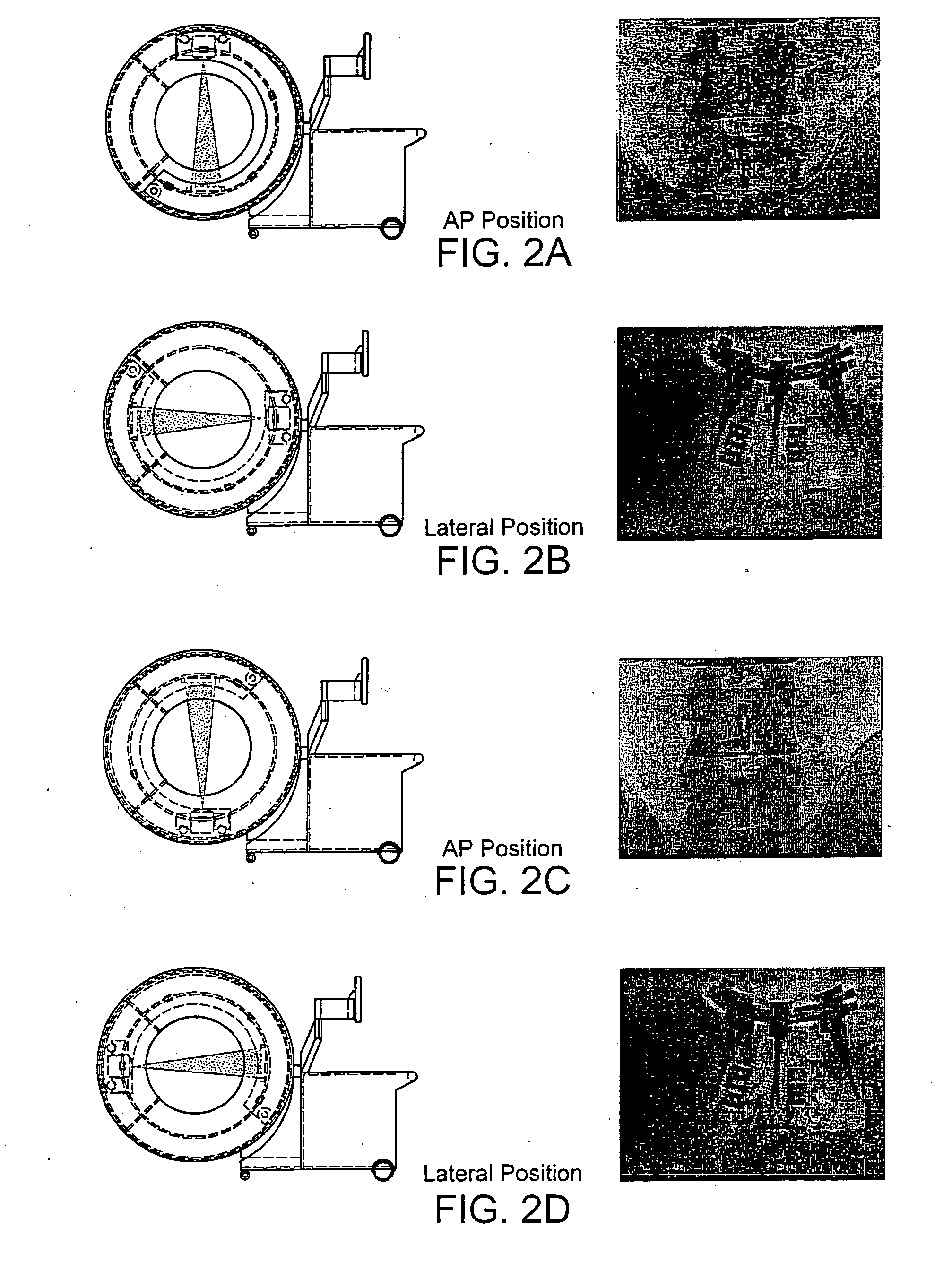Systems and methods for quasi-simultaneous multi-planar x-ray imaging
a multi-planar x-ray and imaging system technology, applied in the field of systems and methods for quasi-simultaneous multi-planar x-ray imaging, can solve the problems of system not being able to move around the hospital as needed, imaging systems operating independently of one another, and permanent mounting to the floor and ceiling
- Summary
- Abstract
- Description
- Claims
- Application Information
AI Technical Summary
Benefits of technology
Problems solved by technology
Method used
Image
Examples
Embodiment Construction
[0030] A description of preferred embodiments of the invention follows.
[0031]FIG. 1 is a schematic diagram showing an x-ray scanning system 10 in accordance with one embodiment of the invention. The x-ray scanning system 10 includes a gantry 11 secured to a support structure, which could be a mobile or stationary cart, a patient table, a wall, a floor, or a ceiling. As shown in FIG. 1, the gantry 11 is secured to a mobile cart 12 in a cantilevered fashion via a ring positioning unit 20. In certain embodiments, the ring positioning unit 20 translates and / or tilts the gantry 11 with respect to the support structure to position the gantry 11 in any number of imaging positions and orientations.
[0032] The mobile cart 12 of FIG. 1 can optionally include a power supply, an x-ray power generator, and a computer system for controlling operation of the x-ray scanning device and for performing image processing, storage of x-ray images, or other data processing functions. In a preferred embod...
PUM
 Login to View More
Login to View More Abstract
Description
Claims
Application Information
 Login to View More
Login to View More - R&D
- Intellectual Property
- Life Sciences
- Materials
- Tech Scout
- Unparalleled Data Quality
- Higher Quality Content
- 60% Fewer Hallucinations
Browse by: Latest US Patents, China's latest patents, Technical Efficacy Thesaurus, Application Domain, Technology Topic, Popular Technical Reports.
© 2025 PatSnap. All rights reserved.Legal|Privacy policy|Modern Slavery Act Transparency Statement|Sitemap|About US| Contact US: help@patsnap.com



